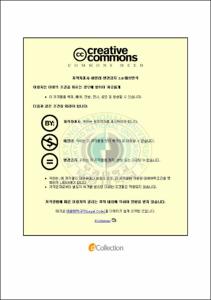현행 공직선거법상의 문제점과 개선방안에 관한 연구
- Alternative Title
- A Study on Problem and Impovement Plan of Current Public Official Election Act
- Abstract
- Nobody would deny the importance of election in today's democratic states. Election is an indispensable system for democracy and a procedure through which a nation can exercise political rights, and people for public office are selected. In particular, since election is the initial step of democratic government to select representatives who take care of state affairs based on the nation's intentions, the importance cannot be overemphasized.
Democratic government requires securing the opportunities for the nation to participate in political procedures as potentate. As stated in Art. 1 of the constitution, a principle of sovereignty, representative democracy, is the basis for today's election system of popular government, in which participation of the nation is necessary, and representatives that make and present political decisions on behalf of the nation and thus consist of the democratic society. The exercise of sovereignty or political rights of the nation, therefore, should be secured in principle as much as possible. The principle of free election is essence of democratic election system, based on the constitution regulations such as the principle of the national sovereignty, the principle of representative democracy, and right of suffrage. Such principles of free election involve not only the freedom of decision making and realization among the nation, but also the freedom of vote, candidacy, and election campaign.
Basically, the freedom of election campaign is protected by Article 21 of the Constitution, but the history of Korean election apparently shows that our politics, economy, society, and culture have been tainted by rigged election and heated election campaign. Thus, it is unavoidable to take measures to prevent political, economic, and social loss due to fraudulent election and overheated election campaign, and impose limitations on activity of candidates and those who are involved in political procedures. Current election laws, however, overly put so much emphasis on justice election that freedom of election, especially freedom of election campaign is too much limited.
Therefore, this study aims to identify problems of the election system full of regulations under the current Public Office Election Law and explore desirable improvement directions from legal and institutional perspectives so that the two principles of ‘freedom’ and ‘fairness’ of election can be properly harmonized.
- Issued Date
- 2008
- Awarded Date
- 2008. 8
- Type
- Dissertation
- Publisher
- 부경대학교 대학원
- Alternative Author(s)
- Choi, Kyoung Eun
- Affiliation
- 부경대학교 대학원
- Department
- 대학원 법학과
- Advisor
- 배영길
- Table Of Contents
- 第1章 序論 = 1
第1節 硏究의 目的 = 1
第2節 硏究의 範圍와 方法 = 2
1. 硏究의 範圍 = 2
2. 硏究의 方法 = 3
第2章 우리나라 選擧制度 = 4
第1節 우리나라 選擧制度의 起源 및 發達史 = 4
第2節 選擧의 槪念 = 5
第3節 현행 公職選擧法의 制定 및 改正經過 = 7
第3章 외국의 選擧制度 = 23
第1節 各國의 選擧制度 = 23
1. 미국 = 23
2. 영국 = 31
3. 프랑스 = 33
4. 독일 = 35
5. 일본 = 37
第2節 比較法的 考察 = 39
1. 선거인의 자격 = 39
2. 선거인명부 = 42
3. 후보자의 자격 = 43
4. 후보자의 지명 = 44
5. 선거운동 = 45
6. 선거구의 획정 = 47
7. 투표에 대한 특별규정 = 49
8. 투표의무 = 50
9. 투표절차 = 51
10. 당선의 공고와 확인 = 54
11. 결원의 보충 = 56
12. 선거제도의 구체적 비교 = 56
第4章 公職選擧法上 制限規定에 관한 問題點과 改善방안 = 59
第1節 선거권과 평등권의 제한 = 59
1. 선거권 = 59
2. 부재자신고 = 63
第2節 피선거권 및 공무담임권의 제한 = 70
1. 피선거권 = 70
2. 정당의 후보자추천 = 74
3. 공무원 등의 입후보 = 80
第3節 선거비용 규제와 선거공영제도 = 83
1. 선거비용규제 = 83
2. 선거공영제도 = 92
第4節 선거운동의 제한 = 102
1. 선거운동의 자유제한 = 102
2. 선거운동방법의 제한 = 107
가. 선거운동의 기간에 관한 제한 = 107
나. 선거운동 방법의 제한 = 109
(1) 동시선거와 분리선거에 따른 선거운동방법의 차이 = 109
(2) 홍보물에 의한 선거운동 = 111
(3) 대중매체에 대한 선거운동 = 118
(4) 집회에 의한 선거운동 = 128
(5) 선거운동방법의 문제점과 평가 = 130
第5章 結論 = 133
參考文獻 = 136
- Degree
- Master
- Files in This Item:
-
-
Download
 현행 공직선거법상의 문제점과 개선방안에 관한 연구.pdf
기타 데이터 / 977.05 kB / Adobe PDF
현행 공직선거법상의 문제점과 개선방안에 관한 연구.pdf
기타 데이터 / 977.05 kB / Adobe PDF
-
Items in Repository are protected by copyright, with all rights reserved, unless otherwise indicated.